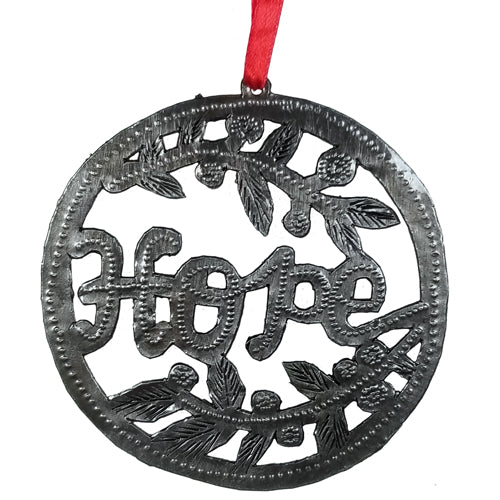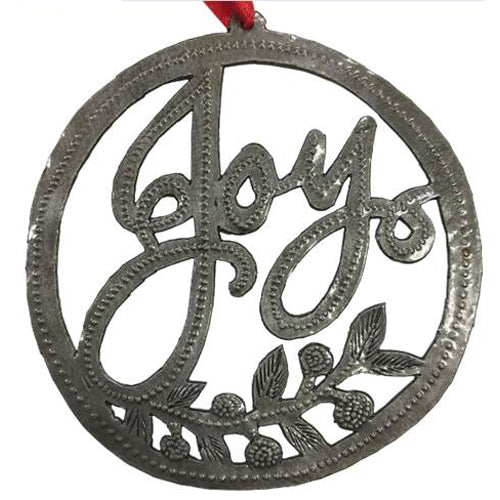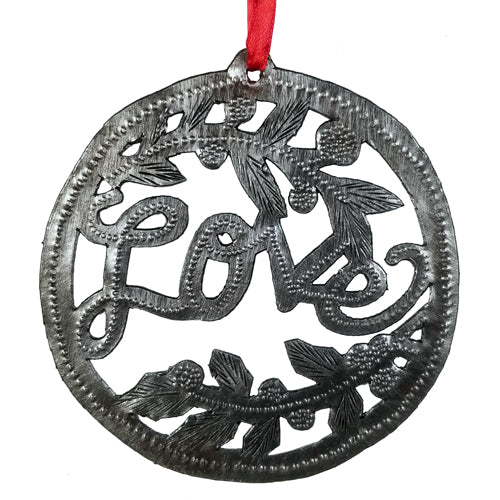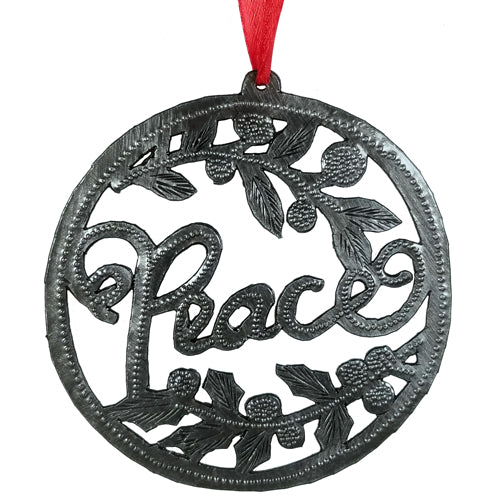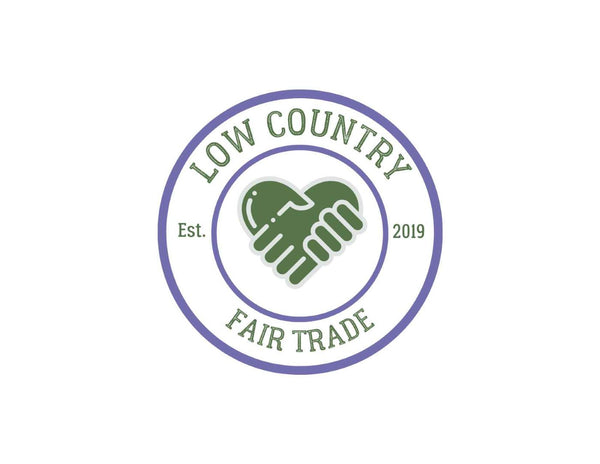OWP
Upcycled Metal Word Christmas Ornaments -Fair Trade- Haiti
Upcycled Metal Word Christmas Ornaments -Fair Trade- Haiti
Couldn't load pickup availability
Most of us can use a little more Love, Hope, Peace, and Joy in our lives. These ornaments, handcrafted from upcycled steel drums, serve as reminders that help us focus our thoughts on the positive qualities that make life beautiful. They can be hung inside or outside, year-round, or for special occasions; it is all up to your imagination. In addition to helping economically disadvantaged artisans, they can also inspire great conversations with friends and families.
The art of making metal crafts from recycled metal drums began about 50 years ago in Haiti when a blacksmith used discarded metal drums to make crosses for the cemetery. Today the artisans in the village of Croix de Bouquets in Haiti are engaged in transforming used metal drums into beautiful pieces of art.
- Each ornament is approximately 4" in diameter
Handmade in Haiti and fair trade imported.
Haiti is known worldwide for its unique steel drum art. Artisans collect these salvaged industrial drums to create beautiful pieces of art. The artist first removes both round ends of the drum and fills the cylinder with straw and dried banana or sugar cane leaves. He sets it on fire, to burn off any paint or residues inside the cylinder. After the metal cools down, it is cut and flattened into a "metal canvas".
Please read our extended description below by clicking on "About the Artisans" for more information on how this beautiful jewelry is made, and for more information on the artists who make them.
Share
About the Artisans
About the Artisans
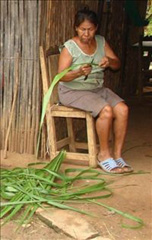 Joyeria Semilla meaning Seed Jewelry is a small fair-trade workshop in the Andean town of Villa de Leyva, Colombia. Girasol Taborda, a local artisan and social entrepreneur, started the workshop in the mid-1990s.
Joyeria Semilla meaning Seed Jewelry is a small fair-trade workshop in the Andean town of Villa de Leyva, Colombia. Girasol Taborda, a local artisan and social entrepreneur, started the workshop in the mid-1990s.
Joyeria Semilla’s objective is three-folds; to create new jobs, revive Colombia's handicrafts sector and to motivate locals to better manage their natural resources. The organization works primarily with socially and economically disadvantaged youths, single mothers and people with disabilities in the area. The company offers free training in product design, technical training and marketing to new members. Joyeria Semilla has trained them in the craft of jewelry-making.
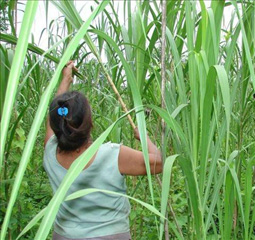
Caña Flecha or “Gynerium Sagittatum” is a locally found palm tree in the regions of the Caribbean coast. The leaves from this plant are used for making jewelry, woven hats, bags and baskets. The Zenú Indians were and their descendants inherited the tradition of picking veins of the green palm leaf for weaving. These veins were made into woven hats and other products for their personal use.
The Zenú culture is said to have existed between 200BC to1600AD. With the arrival of the colonizers in the 16th century, the indigenous community declined of unknown reasons. Today a very small population remains that claims the inheritance of the almost extinct Zenú tribe. Known for their skills in the construction of major waterworks, canals and irrigation system along with being skilled goldsmiths, examples of their accomplished craftsmanship are found in various museums around the world. Their larger means of subsistence were hunting, farming, fishing and trading.
Caña Flecha is found in abundance in the region, and hence makes for a sustainable and naturally available raw material for these products. Every bit of the plant is utilized – from using in building walls and roofs in houses to food for cattle and medicinal purposes. It is from the central vein of the leaf that the fibers for weaving are obtained. After the hard surface is peeled off, the fibers are left in the sun to dry and undergo a natural tinting process; these fibers are barely about 1 millimeter in thickness and hence call for a lot of skill and patience to weave with. The dried fibers are then processed for natural coloration - some are boiled with lemon to whiten them and some are treated with mud and boiled with plantain leaves to blacken them. The designs are based on ancient motifs and mathematical representations, which are inspired by the early Zenú culture.
